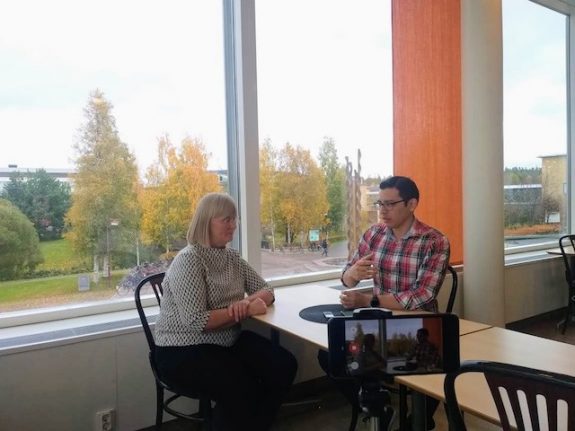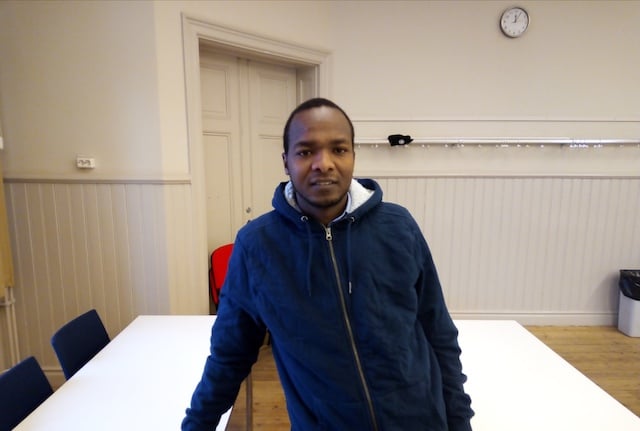The Swedish Institute (SI), through its Scholarship for Global Professionals Programme, aims to develop global leaders who will contribute to the United Nations 2030 Agenda for Sustainable Development. One of the ways this goal is achieved is through the creation of local networks of scholarship holders in every city throughout Sweden where they are all studying. These networks are collectively called the Swedish Institute Network for Future Global Leaders (SI NFGL). Our local network at Umeå is a tightly knit and dynamic group, with an exciting year of scheduled events and activities ahead of us. We strive to work on a diverse and multifaceted portfolio of projects, including academic visits to local organizations and businesses that align with different Social Development Goals (SDGs).
As a member of the network, I saw this as a perfect opportunity to propose the launching of our own in-house podcast. Nowadays, some might say we are overexposed with content and information. However, I believe that having outlets available to delve deeper into specific and niche topics in a diverse style, unconstrained from traditional TV and radio formats, is especially helpful when facing too many options to choose from. This allows some podcasts to cater to niche audiences that are not a priority for other kinds of media. For these reasons, podcasts remain one of the most convenient, easy and time-efficient channels for both listeners and producers. Even major news and analysis content creators, such as The New York Times, Washington Post and The Economist, among others, have identified this trend and produced high quality, hallmark podcast channels. So the question that came to my mind was: would a specially catered podcast for other SI Scholars and students throughout Sweden and produced by their peers, be beneficial and impactful? The answer was a resounding yes.
 Photo: NFGL Local Network Umeå
Photo: NFGL Local Network Umeå
Identifying the potential a podcast may have within fellow young thinkers and leaders and in accordance with the Swedish Institute’s goals and objectives, we decided to launch “SDG Lessons from Umeå” in November 2019. It is our intention to focus on topics pertaining to sustainability, development, and leadership with different guests in short 10 to 15 minute long weekly episodes. Inviting fellow scholarship holders, professors, students, and other stakeholders as guests, we aim to share insights, perspectives, and experiences on all themes related to the Sustainable Development Goals. This will allow us to spread out the understanding of SGDs to every SI scholar and students in the universities around Sweden and the world. It is important to remember that SDGs are not goals solely meant for policymakers, professors, or appointed leaders, but that everyone can and should contribute to the goals by their own actions, insights, and experience.
The podcast will be available on all major podcast platforms, including Spotify, Google Podcasts, Apple Podcasts, Stitcher, Soundcloud, among others. We encourage all fellow SI Local Networks to join us in this initiative by joining our episodes as guests remotely or starting your own podcast production! The Umeå Local Network for Future Global Leaders welcomes you!



 Please whitelist us to continue reading.
Please whitelist us to continue reading.